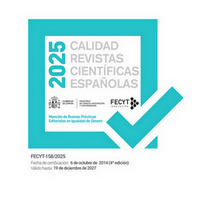The quasi–public opinion in the US Press on Chile, Peru and Bolivia during the Final Phase of the Washington Conferences (1922)
DOI:
https://doi.org/10.24197/ihemc.41.2021.901-932Keywords:
Chile, Peru, Bolivia, United States, pressAbstract
The conferences in Washington, where Chile and Peru tried to resolve the conflict in Tacna and Arica, are examined, focusing on the coverage given by the US press in its final phase. The objective is to analyze the construction of images about the state actors in the process: Chile, Peru, Bolivia and the United States. The hypothesis suggests that this fabrication was based on the media appreciation that Chile and Peru had difficulties in coordinating a settlement, favoring the emergence of a US arbitration. The chosen methodology was mixed, focusing on the quantitative and qualitative aspects of the hemerographic sources. The conclusions indicate that they allow to enrich the historical account of the conferences, highlighting the representative dimension of diplomats as personifications of their States, and detecting the disseminating function of the ethos of the countries studied by the press actant.
Downloads
Downloads
Published
Issue
Section
License
All the articles published in Investigaciones Históricas, época moderna y contemporánea will have a Creative Commons Attribution 4.0 International License (CC BY 4.0).
The journal allows the authors to retain publishing rights. Authors may reprint their articles in other media without having to request authorization, provided they indicate that the article was originally published in the journal Investigaciones Históricas, época moderna y contemporánea.



